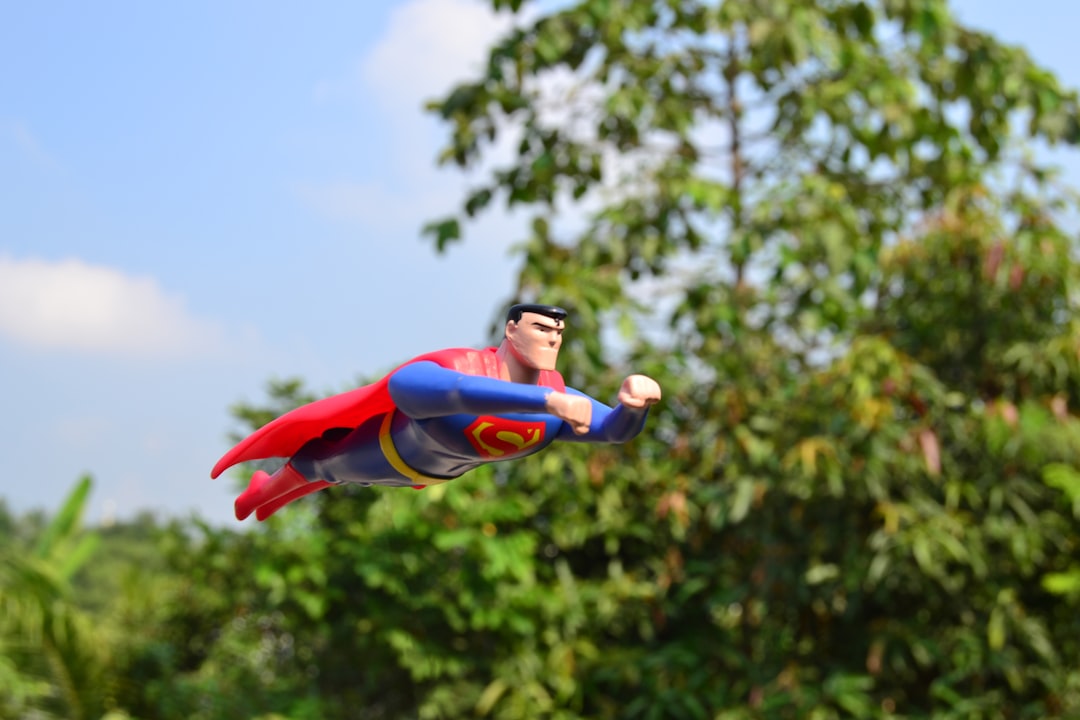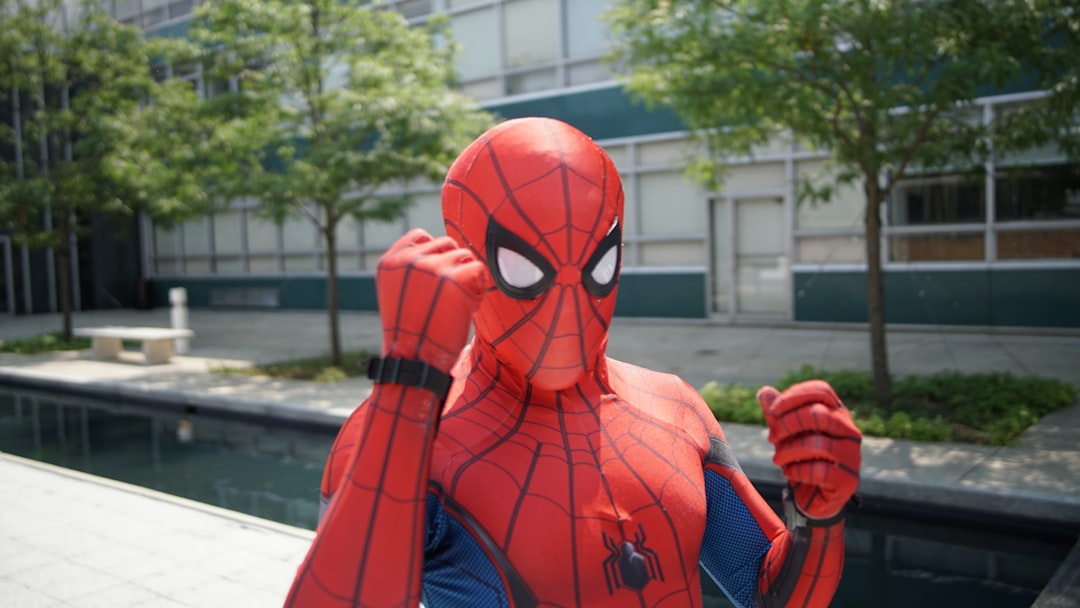Does Posing Like a Superhero Really Boost Confidence
Does Posing Like a Superhero Really Boost Confidence - Investigating the Proposed Hormone Link
Discussions around adopting specific physical stances, sometimes referred to as power posing, have frequently included the idea that these postures could trigger shifts in the body's chemistry. Specifically, proponents have suggested that assuming such positions might lead to elevated levels of testosterone, often associated with dominance, while simultaneously decreasing cortisol, a hormone linked to stress responses. The theory posits that this internal hormonal adjustment is the mechanism driving reported increases in feelings of confidence, improved mood, or reduced anxiety. However, investigations into this proposed hormonal pathway have yielded conflicting findings. While some research initially indicated such changes, later studies have not consistently replicated these results, with some finding no significant impact on either testosterone or cortisol levels stemming from holding these poses. The precise extent to which body posture might physiologically alter hormone levels remains a subject of considerable debate and lacks definitive, widespread support in the available findings, even as the potential psychological effects on self-perception or behavior continue to be explored.
Digging into the proposed link between posture and hormones reveals a few key points that often surprise people outside the initial headlines.
1. It turned out that the initial findings suggesting expansive stances could trigger swift shifts in testosterone and cortisol levels were remarkably difficult for other research teams to reproduce consistently in their own labs.
2. Following up on those early ideas, numerous more structured and carefully controlled studies specifically investigating this hormone connection have generally not found robust evidence of significant, reliable changes in these particular biological markers.
3. As things stand, the scientific consensus largely suggests that merely adopting an open posture doesn't appear to reliably or quickly alter the levels of circulating hormones like testosterone and cortisol in the way originally hypothesized.
4. A significant part of the skepticism that emerged around the proposed physiological benefits of these "power poses" stemmed directly from the widespread difficulty encountered when trying to replicate those initial dramatic reports about hormonal responses.
Does Posing Like a Superhero Really Boost Confidence - Where the Research Currently Stands
Current research into power posing, including stances sometimes called the superhero pose, presents a complex picture. While early ideas proposed that taking expansive postures could boost feelings of confidence and even cause physical shifts, particularly in hormones, investigations since then have introduced considerable doubt about the reliability of these initial claims. The specific physiological impacts, such as rapid changes in testosterone or cortisol, have proven difficult for researchers to consistently demonstrate in follow-up studies. Nevertheless, the question of whether simply adopting a more upright or expansive posture might influence how a person feels or behaves in a given moment continues to be explored. Some evidence persists suggesting a potential positive psychological effect on self-perception and conduct, independent of the debated hormonal pathways. As the field navigates these conflicting findings, the focus remains on understanding if and how non-verbal behavior might impact psychological states, amidst ongoing scrutiny of previous findings and proposed mechanisms.
Given the challenges in consistently finding the hypothesized biological markers, the focus in studying these expansive postures has shifted significantly. As of July 2, 2025, investigations are delving into a few key areas:
1. Despite the limited support for direct hormonal shifts (as discussed earlier), a substantial portion of current inquiry aims to determine if adopting these stances produces *any* reliable psychological effects at all, with attention now primarily directed towards potential changes in self-perception, mood states, or subjective feelings.
2. Researchers grappling with the initial inconsistent findings regarding biological pathways are increasingly exploring alternative psychological mechanisms. This includes investigating concepts like embodied cognition, which suggests that physical states might influence mental processes through sensorimotor feedback loops rather than rapid endocrine changes.
3. Beyond self-reported feelings which appear inconsistently affected, some research lines continue to probe whether these physical stances might impact more concrete behavioral outcomes, such as observed persistence when faced with challenges or a person's stated willingness to engage in tasks often linked to self-assurance.
4. A critical aspect of contemporary investigation is examining the conditions under which any potential psychological or behavioral effects might manifest. This includes scrutinizing whether results are highly contingent upon the specific social or environmental context in which a pose is assumed, or if individual differences significantly mediate the outcomes observed.
5. Rather than treating "power posing" as a singular, uniform intervention, current studies are starting to differentiate between various expansive or upright postures. This involves exploring whether distinct, specific physical configurations might elicit differing or more nuanced psychological responses compared to others, suggesting the effects may not be universal across all "powerful" poses.
Does Posing Like a Superhero Really Boost Confidence - The Subjective Feeling of Standing Tall
Exploring the impact of physical posture naturally includes considering the individual's own internal experience. The idea of adopting a stance like the "superhero pose," standing tall with an open chest, is often intuitively linked with feeling more confident or powerful. Indeed, many accounts and some investigations highlight that individuals report a distinct subjective feeling of heightened self-assurance or security when assuming such expansive postures. This personal sense of feeling "taller" or more dominant inwardly is a central aspect discussed. However, while people may report these subjective shifts, precisely why or how reliably this happens remains a topic of ongoing discussion. The direct physiological explanations initially proposed have proven less consistent, meaning the subjective feeling might stem from other psychological pathways or interactions, which are still being investigated. The reliability and nature of this subjective boost in feeling confident when standing tall continue to be explored for their potential influence on how one perceives oneself.
Delving into how adopting an expansive posture might create that subjective sense of feeling more capable or 'standing tall', independent of debated physiological shifts, researchers are currently exploring several potential avenues as of July 2, 2025.
* One perspective looks at proprioception – the body's sense of its own position and movement in space. The very act of extending limbs and taking up space could provide sensory feedback to the brain that is interpreted as indicative of strength or readiness, subtly influencing internal feeling.
* Investigations are also considering whether the physical stance itself could directly impact neural circuits tied to self-awareness and how emotions are processed. This line of inquiry suggests a more direct neural pathway, potentially bypassing rapid endocrine changes altogether, where motor commands and sensory input from holding a posture might resonate within these self-referential brain areas.
* Another factor being weighed is the role of cognitive expectation. It's plausible that the subjective feeling stems partly from individuals' beliefs about how holding an expansive stance *should* make them feel, perhaps drawing on cultural associations of such postures with power or confidence. This introduces the possibility that expectancies could shape the reported internal state.
* The physical act of expanding into space might, momentarily, engage brain regions associated with reward mechanisms or the motivation to approach challenges rather than avoid them. This could contribute to a transient feeling of capability or willingness to act, feeding into the subjective experience of feeling more confident.
* Finally, external social feedback warrants consideration. Adopting a noticeably different posture might alter how others perceive and interact with an individual. Any subsequent shift in social cues received from the environment based on this non-verbal signal could, in turn, influence the person's internal subjective feeling about themselves in that moment.
Does Posing Like a Superhero Really Boost Confidence - Practical Uses Before an Important Moment
Utilizing particular physical stances, such as an expansive posture sometimes referred to as a "superhero pose," is frequently suggested as a quick preparation method right before facing significant challenges or critical situations. Common examples often include standing like this privately for a brief duration before events like job interviews, delivering a public presentation, or tackling a demanding task. The notion is that holding such a pose, often for around two minutes, is intended to help individuals cultivate a sense of increased confidence and readiness for what lies ahead. Proponents suggest that adopting a posture traditionally associated with strength or determination might help a person feel more resolute, focused, or composed when entering a high-pressure moment. While the precise underlying reasons for any potential effect, particularly concerning rapid physical or chemical shifts in the body, remain a subject of ongoing investigation and haven't been definitively established, the reported psychological sense of feeling more prepared through this simple physical act continues to be considered as a strategy before important junctures.
Looking specifically at adopting these postures right before a significant moment, here are some observations emerging from the ongoing research as of mid-2025:
1. The thinking around using expansive stances just before a task isn't centered on triggering rapid changes in hormones. The focus is on whether they might create immediate, albeit potentially subtle, shifts in psychological state or influence how someone behaves in the moment.
2. Whether any transient feeling of readiness or competence actually emerges after holding a pose appears highly sensitive to the specific situation and potentially varies considerably from one person to the next. It doesn't look like a guaranteed outcome across the board.
3. Current investigations are exploring the possibility that different expansive or upright postures might have distinct, non-uniform effects when used pre-task. The idea that all stances broadly labeled as "powerful" yield identical results seems overly simplistic based on findings.
4. Any reported subjective sense of feeling more capable immediately after striking a pose is being explored through mechanisms like how the brain processes proprioceptive input or via direct neural pathways, rather than through rapid endocrine shifts which have not been consistently observed.
5. Converting these temporary physical stances into reliably observable, concrete changes in behavior during a subsequent challenge – such as sustained effort or approach tendencies – is still an area where definitive, consistent evidence is being sought by researchers.
More Posts from psychprofile.io:
- →The Neurochemistry of Musical Emotions Unraveling the Brain's Response to Melody and Rhythm
- →Understanding the Wechsler Memory Scale-IV Key Clinical Applications and Index Score Interpretations
- →How Brain Wave Patterns During Sleep Reveal Unconscious Problem-Solving Mechanisms
- →The Intersection of Therapy and Legal Proceedings Understanding Confidentiality Limits in Court
- →Online Dating's Paradox Why Marriage Satisfaction Declined 32% Between 2013 and 2023 for Digital Couples
- →The Psychological Impact of War Analyzing Edwin Starr's War Through a Modern Lens

